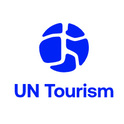New International Code To Provide Greater Legal Protection For Tourists
Tourists are to be given greater legal protection as consumers under new plans being advanced by the World Tourism Organization (UNWTO). With restoring confidence a key priority for the sector, the International Code for the Protection of Tourists advanced by UNWTO with the support of almost 100 Member States so far, will make the support available to tourists affected by emergency situations clearer and more consistent globally.
In its first meeting, the Committee for the Development of an International Code for the Protection of Tourists has featured the active participation of 92 UNWTO Member States. Together, they adopted a concrete plan of action to restore tourists' confidence through a common and harmonized framework. Within the next weeks, international organizations, the European Commission as well as private stakeholders will be called upon to join this unprecedented initiative to achieve a more fair and balanced share of responsibilities among all tourism stakeholders in the post COVID-19 world.
Helping tourists in trouble
Ahead of today's meeting, UNWTO published the Recommendations for the Assistance to International Tourists in Emergency Situations, laying the ground for the International Code for the Protection of Tourists.
These Recommendations are addressed at States and are designed to ensure that responsibility for tourists in emergency situations is shared fairly across the whole of the tourism value chain, including:
- Preventing possible disruptions by drawing up contingency plans and coordination protocols and training tourism stakeholders to assist tourists in emergency situations
- Providing real-time information for tourists
- Addressing cross-border cooperation between governments and tourism service providers
- Fostering close collaboration between governments and travel and accommodation providers
- Addressing the effective repatriation of tourists.
UNWTO Secretary-General Zurab Pololikashvili said: "Uncertainty and a lack of trust in travel are among the biggest challenges we face as we work to restart tourism. An International Code for the Protection of Tourists will be a landmark step towards addressing this. Establishing a standard set of minimum consumer protection standards for tourists will help make people feel safer and more confident in international travel. And it will also ensure that the responsibility of managing the disruptions caused by this pandemic is shared fairly across the whole of our sector."
It is anticipated a progress report on the development of the International Code for the Protection of Tourists will be presented at the next UNWTO General Assembly (end of 2021 in Marrakech, Morocco) for approval by Member States.
About UN Tourism
The World Tourism Organization (UN Tourism) is the United Nations agency responsible for the promotion of responsible, sustainable and universally accessible tourism.
As the leading international organization in the field of tourism, UN Tourism promotes tourism as a driver of economic growth, inclusive development and environmental sustainability and offers leadership and support to the sector in advancing knowledge and tourism policies worldwide.
Our Priorities
Mainstreaming tourism in the global agenda: Advocating the value of tourism as a driver of socio-economic growth and development, its inclusion as a priority in national and international policies and the need to create a level playing field for the sector to develop and prosper.
Promoting sustainable tourism development: Supporting sustainable tourism policies and practices: policies which make optimal use of environmental resources, respect the socio-cultural authenticity of host communities and provide socio-economic benefits for all.
Fostering knowledge, education and capacity building: Supporting countries to assess and address their needs in education and training, as well as providing networks for knowledge creation and exchange.
Improving tourism competitiveness: Improving UN Tourism Members' competitiveness through knowledge creation and exchange, human resources development and the promotion of excellence in areas such as policy planning, statistics and market trends, sustainable tourism development, marketing and promotion, product development and risk and crisis management.
Advancing tourism's contribution to poverty reduction and development: Maximizing the contribution of tourism to poverty reduction and achieving the SDGs by making tourism work as a tool for development and promoting the inclusion of tourism in the development agenda.
Building partnerships: Engaging with the private sector, regional and local tourism organizations, academia and research institutions, civil society and the UN system to build a more sustainable, responsible and competitive tourism sector.
Our Structure
Members: An intergovernmental organization, UN Tourism has 160 Member States, 6 Associate Members, 2 Observers and over 500 Affiliate Members.
Organs: The General Assembly is the supreme organ of the Organization. The Executive Council take all measures, in consultation with the Secretary-General, for the implementation of the decisions and recommendations of the General Assembly and reports to the Assembly.
Secretariat: UN Tourism headquarters are based in Madrid, Spain. The Secretariat is led by the Secretary-General and organized into departments covering issues such as sustainability, education, tourism trends and marketing, sustainable development, statistics and the Tourism Satellite Account (TSA), destination management, ethics and risk and crisis management. The Technical Cooperation and Silk Road Department carries out development projects in over 100 countries worldwide, while the Regional Departments for Africa, the Americas, Asia and the Pacific, Europe and the Middle East serve as the link between UN Tourism and its 160 Member States. The Affiliate Members Department represents UN Tourism's 500 plus Affiliate members.
UN Tourism Communications Department
+34 91 567 8100
UN Tourism
